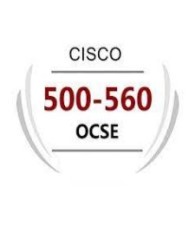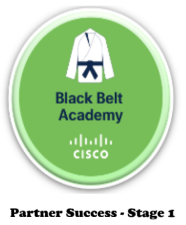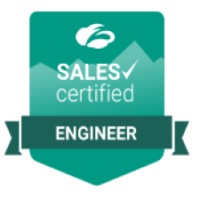Co-authored by Carlos Rojas and David Gutshall.
Manufacturing was front and center at Cisco Live US 2023, with several of the world’s leading manufacturers coming together to share experiences and discuss technology trends, challenges, and innovations. For example, Dr. Henning Löser, Head of the Audi Production Lab at Audi AG, joined the Cisco team for an Innovation Talk and Cube interview about the convergence of information technology (IT) and operational technology (OT). Dr. Löser shared details about the company’s innovative plans to virtualize key production assets with the goal to increase flexibility, lower costs, reduce maintenance, and improve security. A journey toward what Audi calls the Edge Cloud for Production (EC4P) platform.
We also hosted a Manufacturing Leadership Summit that brought together industry leaders from auto, renewable energy, pharmaceuticals, food and beverage, heavy industry, etc. for a more intimate discussion of experiences, challenges, and innovations. I sensed an undercurrent of positive energy and mutual respect as these leaders shared their stories around increasing levels of digitization, improving security, and deploying wired and wireless networks in new and existing plants and production lines. Many discussions focused on how to best drive IT/OT convergence, especially driven by tools like Cisco Catalyst Center (formerly known as Cisco DNA Center). Attendees also discussed efforts to boost visibility and cybersecurity. And we heard about the push to upgrade networking in existing plants and invest in wireless networks for automated guided vehicles (AGVs) and other mobile assets.
Having mulled over what I heard at Cisco Live US, I’ve landed on these five takeaways.
Takeaway #1: Manufacturing is heading towards a technology paradigm shift
As manufacturers increase digitization on factory floors, they can no longer look to individual pieces of hardware for certain features or functions. Instead, they need to invest in software that can provide the needed capabilities.
This paradigm shift was a key message emerging from the iTalk about Audi’s collaboration with Cisco. As Dr. Löser has noted, “To increase security, decrease support requirements, and improve flexibility, Audi is developing its Edge Cloud for Production (EC4P) platform. EC4P virtualizes production assets and relies on software-defined networking by Cisco IoT and Enterprise solutions that provide a scalable, resilient, secure and deterministic network.”
By making this shift from hardware to software, manufacturers can avoid significant maintenance headaches and reduce capital outlays. They can improve security and flexibility – all by streamlining hardware and virtualizing core computing assets like programmable logic controllers (PLCs), Human-Machine Interfaces (HMIs), and industrial personal computers (IPCs). The IoT Manufacturing Industry Summit provided evidence that this shift is already possible, with Roland Wagner – who leads Product Marketing at Codesys – demonstrating the readiness of the virtual PLC live.
Takeaway #2: Security remains top of mind
In a pre-event survey, manufacturing leaders expressed concerns about cybersecurity, with visibility and risk assessment topping their priorities. Another common barrier: lack of accuracy in knowing their own asset inventory, traffic flows, and what each asset is connected to. And yet, as manufacturers work to enable further digitization initiatives, they need to do more than achieve that kind of baseline visibility. They also need to establish access policies to segment their network so they can more precisely control network activity and prevent malware spread.
We often think about cybersecurity in terms of prevention and defense. Interestingly, one manufacturer shared how its cybersecurity investments produced a tangible return. This company used Cisco networking and security technology to address insurance-company inquiries into cybersecurity within its production environment. Having sound, defensible answers paid off in the form of significantly lower insurance premiums – which helped fund additional investments.
Takeaway #3: There’s plenty of appetite for wireless technologies in production environments
I was impressed with the level of demand for wireless technologies. When it comes to 5G and private 5G, though, there seems to be a lot of appetite but few, if any, real-world deployments. It seems that by combining other wireless solutions – namely WiFi and Cisco Ultra-Reliable Wireless Backhaul – companies can support many of their business needs and use cases, especially around mobile assets, such as Automated Guide Vehicles and AMRs that require reliable wireless connectivity.
Takeaway #4: Collaboration is critical to success
Cisco IoT has long advocated for stronger IT-OT partnerships. During the summit, it was fascinating to hear that nearly every customer reiterated the importance of IT-OT collaboration in powering the success of manufacturing digitization initiatives. Most of the attending companies and speakers had OT involvement showing the trend towards deeper collaboration.
Informally, I heard some manufacturing leaders voicing being impressed by Dr. Löser openness about Audi’s EC4P vision and journey. From my perspective, it’s a willingness to acknowledge that all automotive manufacturers are facing some common problems – and a recognition that it will take an ecosystem (that includes competitors) response to solve them. By the way, I don’t think automotive is the only manufacturing segment where this kind of collaboration will be vital!
Takeaway #5: Solutions need to be simple, scalable, and easy to use
The summit affirmed that the manufacturing industry has made significant progress in digitization. Companies now want to take the next steps toward cloud, virtualization, and advanced security – the capabilities that Cisco can enable with our scalable, resilient, and secure industrial networking. I observed significant interest in several of our solutions, including Secure Equipment Access and the recently announced SKUs within the Cisco Catalyst IE9300 Rugged Series switches. Both meet the need for simplicity, scalability, and ease of use.
Whether you joined us in Las Vegas or are catching up remotely, here are some ways you can engage with Cisco and learn about our solutions:
Tune in to the iTalk featuring Audi’s EC4P vision and journey.
Watch a brief interview with Dr. Löser.
Learn more about Cisco Industrial Wireless solutions.
Schedule a free non-obligation 1-on-1 consultation with our manufacturing experts via our manufacturing contact form.
Co-authored by Carlos Rojas and David Gutshall.
Manufacturing was front and center at Cisco Live US 2023, with several of the world’s leading manufacturers coming together to share experiences and discuss technology trends, challenges, and innovations. For example, Dr. Henning Löser, Head of the Audi Production Lab at Audi AG, joined the Cisco team for an Innovation Talk and Cube interview about the convergence of information technology (IT) and operational technology (OT). Dr. Löser shared details about the company’s innovative plans to virtualize key production assets with the goal to increase flexibility, lower costs, reduce maintenance, and improve security. A journey toward what Audi calls the Edge Cloud for Production (EC4P) platform.
We also hosted a Manufacturing Leadership Summit that brought together industry leaders from auto, renewable energy, pharmaceuticals, food and beverage, heavy industry, etc. for a more intimate discussion of experiences, challenges, and innovations. I sensed an undercurrent of positive energy and mutual respect as these leaders shared their stories around increasing levels of digitization, improving security, and deploying wired and wireless networks in new and existing plants and production lines. Many discussions focused on how to best drive IT/OT convergence, especially driven by tools like Cisco Catalyst Center (formerly known as Cisco DNA Center). Attendees also discussed efforts to boost visibility and cybersecurity. And we heard about the push to upgrade networking in existing plants and invest in wireless networks for automated guided vehicles (AGVs) and other mobile assets.
Having mulled over what I heard at Cisco Live US, I’ve landed on these five takeaways.
Takeaway #1: Manufacturing is heading towards a technology paradigm shift
As manufacturers increase digitization on factory floors, they can no longer look to individual pieces of hardware for certain features or functions. Instead, they need to invest in software that can provide the needed capabilities.
This paradigm shift was a key message emerging from the iTalk about Audi’s collaboration with Cisco. As Dr. Löser has noted, “To increase security, decrease support requirements, and improve flexibility, Audi is developing its Edge Cloud for Production (EC4P) platform. EC4P virtualizes production assets and relies on software-defined networking by Cisco IoT and Enterprise solutions that provide a scalable, resilient, secure and deterministic network.”
By making this shift from hardware to software, manufacturers can avoid significant maintenance headaches and reduce capital outlays. They can improve security and flexibility – all by streamlining hardware and virtualizing core computing assets like programmable logic controllers (PLCs), Human-Machine Interfaces (HMIs), and industrial personal computers (IPCs). The IoT Manufacturing Industry Summit provided evidence that this shift is already possible, with Roland Wagner – who leads Product Marketing at Codesys – demonstrating the readiness of the virtual PLC live.
Takeaway #2: Security remains top of mind
In a pre-event survey, manufacturing leaders expressed concerns about cybersecurity, with visibility and risk assessment topping their priorities. Another common barrier: lack of accuracy in knowing their own asset inventory, traffic flows, and what each asset is connected to. And yet, as manufacturers work to enable further digitization initiatives, they need to do more than achieve that kind of baseline visibility. They also need to establish access policies to segment their network so they can more precisely control network activity and prevent malware spread.
We often think about cybersecurity in terms of prevention and defense. Interestingly, one manufacturer shared how its cybersecurity investments produced a tangible return. This company used Cisco networking and security technology to address insurance-company inquiries into cybersecurity within its production environment. Having sound, defensible answers paid off in the form of significantly lower insurance premiums – which helped fund additional investments.
Takeaway #3: There’s plenty of appetite for wireless technologies in production environments
I was impressed with the level of demand for wireless technologies. When it comes to 5G and private 5G, though, there seems to be a lot of appetite but few, if any, real-world deployments. It seems that by combining other wireless solutions – namely WiFi and Cisco Ultra-Reliable Wireless Backhaul – companies can support many of their business needs and use cases, especially around mobile assets, such as Automated Guide Vehicles and AMRs that require reliable wireless connectivity.
Takeaway #4: Collaboration is critical to success
Cisco IoT has long advocated for stronger IT-OT partnerships. During the summit, it was fascinating to hear that nearly every customer reiterated the importance of IT-OT collaboration in powering the success of manufacturing digitization initiatives. Most of the attending companies and speakers had OT involvement showing the trend towards deeper collaboration.
Informally, I heard some manufacturing leaders voicing being impressed by Dr. Löser openness about Audi’s EC4P vision and journey. From my perspective, it’s a willingness to acknowledge that all automotive manufacturers are facing some common problems – and a recognition that it will take an ecosystem (that includes competitors) response to solve them. By the way, I don’t think automotive is the only manufacturing segment where this kind of collaboration will be vital!
Takeaway #5: Solutions need to be simple, scalable, and easy to use
The summit affirmed that the manufacturing industry has made significant progress in digitization. Companies now want to take the next steps toward cloud, virtualization, and advanced security – the capabilities that Cisco can enable with our scalable, resilient, and secure industrial networking. I observed significant interest in several of our solutions, including Secure Equipment Access and the recently announced SKUs within the Cisco Catalyst IE9300 Rugged Series switches. Both meet the need for simplicity, scalability, and ease of use.
Whether you joined us in Las Vegas or are catching up remotely, here are some ways you can engage with Cisco and learn about our solutions:
Tune in to the iTalk featuring Audi’s EC4P vision and journey.
Watch a brief interview with Dr. Löser.
Learn more about Cisco Industrial Wireless solutions.
Schedule a free non-obligation 1-on-1 consultation with our manufacturing experts via our manufacturing contact form.
Industry leaders discussed the technology paradigm shift in manufacturing, and challenges and innovations around security, wireless technologies, and IT/OT collaboration. Read More Cisco Blogs










